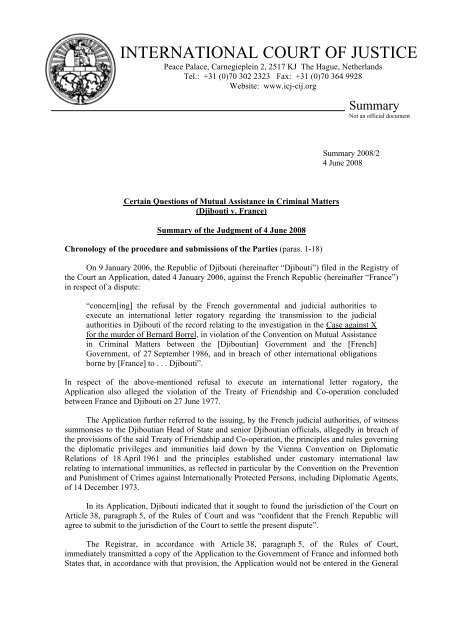The Process Involved in Filing Letters Rogatory: A Step-by-Step Guide
The Process Involved in Filing Letters Rogatory: A Step-by-Step Guide
Blog Article
The Duty of Letters Rogatory in International Regulation: Trick Insights
Letters rogatory serve as a crucial tool in international regulation, assisting in cross-border legal aid by enabling jurisdictions to officially request proof and actions from one an additional. What implications might these obstacles have for future legal process?
Meaning of Letters Rogatory
In the world of worldwide regulation, letters rogatory work as official requests released by a court in one jurisdiction to look for support from a court in an additional jurisdiction. Letters rogatory. These demands are particularly considerable in cross-border lawful procedures, where the enforcement of a court's order or the celebration of evidence might be impeded because of administrative limitations

The process usually needs the requesting court to express the details info or action required from the international court, sticking to the legal protocols and conventions developed between the territories included. Once released, the letters rogatory are transferred through polite channels, which might include consular offices or consular offices, to make certain that the request is identified and acted on by the international court. In general, letters rogatory exemplify the cooperative structure vital for reliable worldwide legal procedures.
Historic Context
Although the method of letters rogatory has old roots, its formalization within the framework of international legislation arised considerably in the 20th century. Historically, such ask for judicial assistance were used in different lawful customs, including Roman regulation, where they assisted in cross-border collaboration in legal issues. The concept got restored attention with the increase of globalization and the increasing intricacy of international legal communications.
The mid-20th century saw the establishment of treaties and conventions that sought to systematize the process of letters rogatory. Notably, the 1970 Hague Convention on the Taking of Evidence Abroad in Civil or Industrial Issues supplied a structured strategy, improving the efficiency of these demands - Letters rogatory. This duration noted a change from informal setups to a much more systematic structure, which addressed the difficulties posed by differing national legal systems
As states became extra synergistic, the requirement for effective systems to collect proof throughout boundaries emerged, strengthening the duty of letters rogatory in helping with international teamwork. Today, they continue to be a vital tool for obtaining proof and making certain that justice transcends national limits, showing the advancing nature of worldwide regulation in response to international difficulties.
Process of Issuing Requests
The procedure of releasing letters rogatory typically involves a number of important steps designed to make certain that ask for judicial help are clear, specific, and certified with both residential and global lawful requirements. An event looking for aid should prepare an official request that lays out the pertinent truths of the situation, the alleviation sought, and the particular proof or testimony called for. This paper should be crafted with precision to meet the lawful requirements of the territory in which it will be submitted.
Following the preparation of the demand, it is submitted to the suitable authority, frequently a court or an assigned governmental firm. This authority examines the demand to guarantee it follows procedural standards and lawful criteria. Once approved, the request is transmitted to the foreign jurisdiction through polite channels.
Upon receipt, the foreign court examines the request's compliance with its local legislations and methods (Letters rogatory). If approved, it proceeds to implement the demand, which may involve the issuance of subpoenas or the collection of evidence. Throughout this process, keeping clear communication between the asking for and receiving territories is vital to make sure successful teamwork and the fulfillment of the request
Obstacles and Limitations
Limitations and challenges often emerge in the process of implementing letters rogatory, typically originating from varying lawful systems and treatments between jurisdictions. One substantial barrier is the varying standards of admissibility for evidence, which can cause difficulties in the acceptance of documentation requested with letters rogatory. In addition, the absence of harmony in lawful terminology and definitions can create misunderstandings, complicating communication in between courts in various nations.
In addition, hold-ups prevail due to bureaucratic processes, as the request may require to travel through numerous layers of lawful authorities prior to it is satisfied. In some circumstances, the asked for territory may lack the required resources or determination to work together, additionally impeding the process. Language barriers also add to challenges, as exact translation of lawful records is critical for making certain that the desired message is shared without distortion.
Finally, sovereignty worries may arise, as some states hesitate to abide by demands that they view as infringing upon their legal autonomy. These obstacles highlight the intricacies intrinsic in making use of letters rogatory, necessitating greater harmonization and participation amongst worldwide legal systems to boost their efficiency.

Influence On International Participation
Recognizing the importance of letters rogatory in promoting global participation is essential, as these requests assist in cross-border lawful aid and advertise collaborative efforts in criminal and civil matters. By allowing one territory to officially ask for aid from an additional, letters rogatory develop an organized lawful structure that boosts the efficiency of global communication between judicial authorities.
Making use of letters rogatory assists to develop shared depend on and regard amongst nations, which is necessary in a significantly interconnected globe. They work as a system not only for gathering evidence but additionally for making certain that lawful procedures are promoted throughout boundaries. This is specifically vital in combating global criminal offense, where the failure to protect collaboration check my source can undermine justice.
Moreover, the dependence on letters rogatory can simplify intricate legal proceedings, reducing hold-ups and unpredictabilities in worldwide investigations. The step-by-step safeguards intrinsic in this process add to the defense of private legal rights while facilitating cooperation amongst states. Eventually, the impact of letters rogatory on global teamwork underscores their duty as crucial tools in the promo of justice, promoting a collaborative spirit that goes beyond national borders and legal systems.
Verdict
In final thought, letters rogatory serve as a crucial instrument in global law, promoting cross-border legal websites assistance and teamwork. Despite intrinsic challenges such as varying legal requirements and bureaucratic hold-ups, their standard treatments promote trust fund among countries. The ongoing evolution of these devices is important for boosting the effectiveness of worldwide lawful processes, eventually cultivating stronger partnership in both criminal and civil issues across jurisdictions. The relevance of clear communication in this context can not be overstated.
Letters rogatory serve as a critical tool in worldwide regulation, promoting cross-border lawful aid by allowing jurisdictions to formally request evidence and actions from one an additional.The procedure generally requires the asking for court to express the specific information or activity required from the international court, sticking to the lawful procedures and conventions established between the territories involved. Historically, such demands for judicial aid were made use of in numerous lawful customs, including Roman legislation, where they helped with cross-border collaboration in legal matters.The procedure of releasing letters rogatory normally includes numerous essential actions created to ensure that demands useful content for judicial assistance are clear, specific, and compliant with both domestic and global lawful requirements.Additionally, delays are common due to bureaucratic procedures, as the request may require to pass with multiple layers of lawful authorities before it is fulfilled.
Report this page